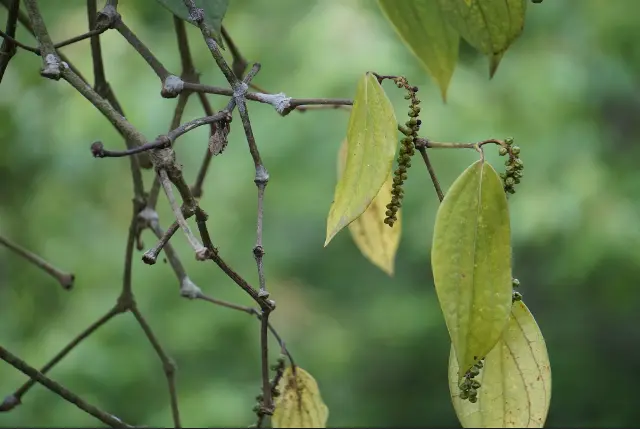Black pepper plants, known for their flavorful fruits that spice up culinary dishes, are a delightful addition to any garden or indoor space. However, encountering issues such as the browning or blackening of the plant’s ends can be concerning for gardeners. In this blog post, we’ll explore the potential causes behind this problem and provide solutions to help you restore your black pepper plant to its healthy state.
Understanding Black Pepper Plants
Before diving into the reasons for blackening ends, let’s familiarize ourselves with black pepper plants. These tropical vines, native to India, are cultivated for their peppercorns, which are harvested from the plant’s berries. Black pepper plants thrive in warm, humid environments with well-drained soil and partial shade.
Possible Causes of Blackening Ends
- Overwatering: Excessive moisture around the roots can lead to root rot, causing the plant’s foliage to wilt and turn black at the tips. Ensure that the soil is well-drained, and avoid waterlogging by allowing the top inch of soil to dry out between waterings.
- Underwatering: Conversely, underwatering can also stress the plant and cause the leaf tips to blacken. Check the soil moisture regularly, especially during hot weather or when the plant is actively growing, and water thoroughly when the top layer of soil feels dry.
- Nutrient Deficiency: Black pepper plants require essential nutrients, including nitrogen, phosphorus, and potassium, for healthy growth. A deficiency in any of these nutrients can manifest as blackening or browning of the leaf tips. Consider fertilizing your plant with a balanced fertilizer according to the manufacturer’s instructions.
- Poor Drainage: Inadequate drainage can lead to waterlogged soil, which suffocates the roots and promotes fungal diseases. Ensure that your black pepper plant is potted in a container with drainage holes and use a well-draining potting mix to prevent water from pooling around the roots.
- Environmental Stress: Environmental factors such as temperature extremes, low humidity, or exposure to direct sunlight can stress the plant and cause leaf damage. Place your black pepper plant in a location with filtered sunlight and provide supplemental humidity by misting the leaves or placing a tray of water nearby.
Remedies and Prevention Tips
Once you’ve identified the cause of the blackening ends on your black pepper plant, take appropriate measures to remedy the issue and prevent further damage:
- Adjust your watering practices to maintain consistent soil moisture without waterlogging.
- Ensure proper drainage by repotting your plant in a container with drainage holes and using a well-draining potting mix.
- Monitor the plant’s nutrient levels and fertilize as needed to correct any deficiencies.
- Protect your black pepper plant from environmental stressors by providing suitable growing conditions and maintaining optimal humidity levels.
Conclusion
The blackening of the ends of your black pepper plant can indicate underlying issues such as overwatering, underwatering, nutrient deficiencies, poor drainage, or environmental stress. By identifying the cause and implementing appropriate remedies, you can restore your plant to health and ensure its continued growth and productivity. With proper care and attention, your black pepper plant will thrive, rewarding you with flavorful peppercorns for years to come.
MORE POSTS: How to propagate Carolina allspice plant?

